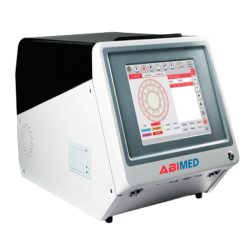#diagnostic testing
Explore tagged Tumblr posts
Text

Eosinophils on a skin cytology from a cat suffering from eosinophilic granuloma complex.
#veterinary#vet tech#diagnostic testing#white blood cells#skin cytology#eosinophils#eosinophilic granuloma complex#cat#allergies#dermatology
8 notes
·
View notes
Text
I have a colonoscopy and endoscopy coming up in two weeks. I’m kind of scared. Going under anesthesia weirds me out. People having access to my unconscious body makes me anxious. Not having memory/control of what I might say coming out of anesthesia gives me anxiety too. And on top of that, I’m worried about what they may find. I’m worried about what they might not find. My desire for answers is equal to the size of my fear of getting terrible news.
13 notes
·
View notes
Text



During the wintertime, we will work on a few vehicles that are shaking. It might feel like the car has a vibrating steering wheel.
When the problem occurs can vary – maybe it’s when a motorist is heading down the road at 40 to 50 miles per hour or they’re not moving at all.
There are many potential sources behind a shaking car.
#car vibrations#vibration while braking#diagnostic testing#prince william county virginia#hometowne auto repair and tire#shaking car
0 notes
Text
Urgent care centers are designed to provide quick medical attention for conditions that aren’t life-threatening but still require prompt care. If you have an illness or injury that needs attention outside of normal office hours, visiting an urgent care center in Florida is a great option. These centers are staffed by medical professionals who are equipped to treat common conditions like sprains, cuts, colds, and more.
0 notes
Text

How can you keep your INFINITI performing at its best? Remember to schedule your routine vehicle diagnostic testing at our INFINITI Service Center!
We can diagnose if there are any repairs that need to get addressed when you come in for a diagnostic test, whether it's something like a blocked catalytic converter or a malfunction with the oxygen sensor.
There are many moving parts in your INFINITI and it is essential to ensure that they are all working optimally.
0 notes
Text

Diagnostic testing was recommended for a BMW 740iL.
The parking brake isn’t working. We tried using the brake a few times and it barely held once.
In order to pass the Virginia State Inspection, the brake must be able to hold when a car is parked at a slight incline.
#diagnostic testing#parking brake#BMW 740iL#braking system#steve's auto repair and tire#prince william county virginia
0 notes
Text
Phlebotomy plays a crucial role in ensuring the accuracy of results in a medical laboratory in Holiday, Florida. When performed correctly, blood draws can significantly impact the quality of diagnostic tests. A skilled phlebotomist ensures that blood samples are collected with precision, minimizing the risk of contamination or incorrect results. Accurate sample collection is essential for reliable lab outcomes, making phlebotomy an integral part of maintaining high standards in clinical testing.
0 notes
Text
Advancing Precision Diagnostics: Technology, Applications, and Future Insights
Adequate diagnosis is the use of advanced technologies to accurately analyze biological markers in patients. This emerging field allows for more targeted diagnosis and treatment compared to traditional one-size-fits-all approaches. By developing a deep understanding of disease at the molecular level, adequate diagnosis can enable truly personalized care for each unique patient. Advanced Technology Enabling Precision
Major technological advances are fueling the rise of adequate Precision Diagnostics. Next-generation sequencing has dramatically reduced the cost and increased the speed of obtaining genetic information from patients. This genomic data provides crucial biomarkers that can indicate disease risk, identify molecular subgroups, and predict treatment responses. Advanced imaging techniques now allow visualization of organs and tissues at microscopic resolution. Combining molecular analysis with diagnostic imaging creates a multi-dimensional overview of a patient's condition. Computer algorithms also play an important role by synthesizing huge amounts of biomarker and clinical data to derive diagnostic and prognostic insights. Together, these technologies empower clinicians with the tools for pinpoint targeting and tracking of diseases. Insights for a Variety of Precision Diagnostics
Cancer is one area that has benefited greatly from adequate diagnosis approaches. Genomic profiling of tumor samples routinely identifies disease-driving genetic alterations that can be targeted with specific therapies. For example, detection of Epidermal Growth Factor Receptor (EGFR) mutations in lung cancer guides treatment decisions for EGFR inhibitor drugs. Similar molecular characterization is available for other cancer types like melanoma, leukemia, and breast cancer. Cardiovascular diseases are also embracing precision, with new genetic risk scores to predict heart attack or stroke likelihood. Biomarkers in blood can detect early signs of conditions like heart failure and help monitor responses to therapies over time. In neurology, biomarkers hold promise for improving Alzheimer's and Parkinson's disease diagnoses which currently rely on clinical assessments. Molecular subtyping of lung diseases, infections and autoimmune conditions may also enable personalized management strategies in the future. Challenges in Implementing Adequate diagnosis
While the opportunities presented by adequate diagnosis are exciting, challenges remain in fully realizing this vision in clinical practice. One major hurdle is the complexity of analyzing, securely storing and interpreting vast amounts of multi-dimensional patient data. Turning raw biomarkers into actionable medical insights requires advanced data analytics capabilities that will continue advancing. Regulatory bodies must also establish standards and oversight procedures for precision diagnostic tests to ensure accuracy, efficacy and safety. Reimbursement policies need revising to account for the development costs of precision technologies and ongoing monitoring of patients. Building an adequately skilled clinical workforce is equally important, as physicians need training to proficiently collect and interpret different biomarkers alongside traditional examinations. Over time, large real-world outcomes studies will further validate the clinical utility and cost-effectiveness of precision approaches on diverse patient populations and health systems. With dedication to addressing these obstacles, adequate diagnosis show tremendous long-term potential to transform healthcare delivery. Get more insights on Precision Diagnostics
Discover the Report for More Insights, Tailored to Your Language
French
German
Italian
Russian
Japanese
Chinese
Korean
Portuguese
About Author:
Money Singh is a seasoned content writer with over four years of experience in the market research sector. Her expertise spans various industries, including food and beverages, biotechnology, chemical and materials, defense and aerospace, consumer goods, etc. (https://www.linkedin.com/in/money-singh-590844163)

#Precision Diagnostics#Diagnostic Testing#Personalized Medicine#Molecular Diagnostics#Precision Medicine#Genetic Testing#Biomarker Analysis
0 notes
Text
Podcast - Positive and Negative Predictive Values: Critical Appraisal Nugget
Our latest critical appraisal podcast about positive and negative predictive values.
Welcome back to another instalment of our Critical Appraisal Nugget series with Rick Body and Greg Yates here at St Emlyn’s. In our previous podcast, we delved into the concepts of sensitivity and specificity, laying a strong foundation for understanding diagnostic tests. Today, we’re building on that knowledge by exploring positive predictive value (PPV) and negative predictive value…
0 notes
Text
Explore the pros and cons of booking lab tests online versus in-person. Compare convenience, cost, and speed, and read real-life case studies to decide which method suits your needs best.
0 notes
Text

Ear mite party! *dance music*
(Otodectes cynotis)
We're treating the kitty with two months of topical selemectin (Revolution, Revolt).
41 notes
·
View notes
Text
Clinical Chemistry Analyzer
A clinical chemistry analyzer is a vital piece of medical laboratory equipment used to analyze various chemical components within bodily fluids such as blood, serum, plasma, or urine. Simultaneous dual-wavelength measuring

#Biochemical Analysis#Laboratory Equipment#Diagnostic Testing#Detection Technology#Automated Testing
0 notes
Text



Every once in a while, you might hear something out of the ordinary as you drive out of a parking spot or travel down the road.
There are many reasons why these sounds appear.
Car noise can come from anywhere, such as your suspension and tires. They may occur as engine components wear out, belts loosen, and your vehicle experiences normal wear and tear.
What you’re experiencing could be stemming from the air conditioning system or the brakes, as well.
Because they can be symptoms of car problems or indicate that maintenance is needed, it’s a good idea to pay attention to the noises you hear and have an expert look into them.
#car noise#prince william county virginia#noise diagnostics#diagnostic testing#hometowne auto repair and tire
0 notes
Text
Whether it’s a child or an adult who will undergo an ADHD assessment, the steps for a proper diagnosis are more or less the same. Some primary care services in Connecticut may include psychological services such as diagnostic testing and consultations for various mental health problems. Continue reading the article to familiarize the process of getting tested for ADHD.
0 notes
Text

this started as scarlet pearl now its rena diggity dog
#this is for my diagnostic test for my sem#im cooked chat#Ichikarume Art#rendog#rendog fanart#fem rendog#trafficblr#hermitblr#third life rendog#third life
180 notes
·
View notes
Text
One of the most deeply frustrating parts of this whole scam-accusation thing when it comes to GFMs is the complete ignorance of like. basic risk-benefit analysis. Even putting aside the blatant ignorance of the situation in Gaza to accuse anyone "sounding desperate" of being a scammer, the risk of a false positive is so much worse than a false negative here. If you fall for a scam, you might lose $5, $10, however much you donate that time. If you incorrectly flag a fundraiser as a scam and that impacts that family's ability to bring in money, they could die.
I really do understand how bad it feels to be scammed and wanting to ensure your money is going to people who need it, but in a situation like this that's so time-sensitive and grassroots, it's impossible for every GFM to be a perfectly polished. I cannot understate the gravity of how devastating a scam accusation or skipping over a fundraiser can be for the families making them. Fundraisers that don't meet their goals are people who may not be able to leave, or to get medical treatment, or to have a place to sleep or food to eat. If it's a choice between getting scammed once or twice (which, I cannot stress enough, is insanely unlikely) so that I don't overlook someone who is trying to survive a genocide, it's an easy decision for me. Please don't let the fear of scams dissuade you from donating-- the risk is so much greater on one side than the other
#palestine#this concept (selectivity vs specificity) is used a lot in diagnostic testing for medical conditions btw#but that's a post for another day
64 notes
·
View notes